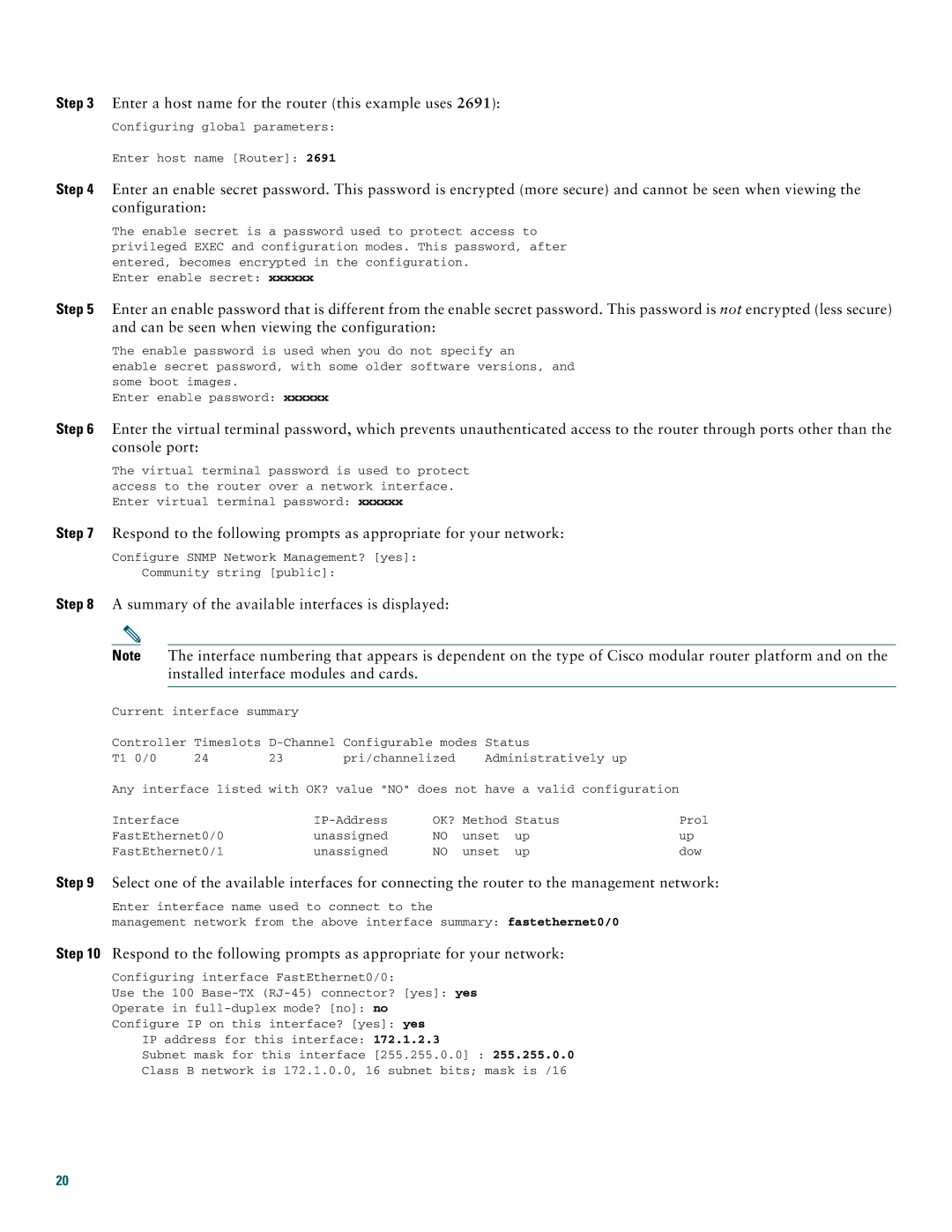
Step 3 Enter a host name for the router (this example uses 2691):
Configuring global parameters:
Enter host name [Router]: 2691
Step 4 Enter an enable secret password. This password is encrypted (more secure) and cannot be seen when viewing the configuration:
The enable secret is a password used to protect access to privileged EXEC and configuration modes. This password, after entered, becomes encrypted in the configuration.
Enter enable secret: xxxxxx
Step 5 Enter an enable password that is different from the enable secret password. This password is not encrypted (less secure) and can be seen when viewing the configuration:
The enable password is used when you do not specify an
enable secret password, with some older software versions, and some boot images.
Enter enable password: xxxxxx
Step 6 Enter the virtual terminal password, which prevents unauthenticated access to the router through ports other than the console port:
The virtual terminal password is used to protect access to the router over a network interface. Enter virtual terminal password: xxxxxx
Step 7 Respond to the following prompts as appropriate for your network:
Configure SNMP Network Management? [yes]:
Community string [public]:
Step 8 A summary of the available interfaces is displayed:
Note The interface numbering that appears is dependent on the type of Cisco modular router platform and on the installed interface modules and cards.
Current interface summary |
|
| ||
Controller | Timeslots | Status | ||
T1 0/0 | 24 | 23 | pri/channelized | Administratively up |
Any interface listed | with OK? value "NO" does not | have a valid configuration | ||
Interface | OK? | Method | Status | Prol | |
FastEthernet0/0 | unassigned | NO | unset | up | up |
FastEthernet0/1 | unassigned | NO | unset | up | dow |
Step 9 Select one of the available interfaces for connecting the router to the management network:
Enter interface name used to connect to the
management network from the above interface summary: fastethernet0/0
Step 10 Respond to the following prompts as appropriate for your network:
Configuring interface FastEthernet0/0:
Use the 100
Operate in
Configure IP on this interface? [yes]: yes
IP address for this interface: 172.1.2.3
Subnet mask for this interface [255.255.0.0] : 255.255.0.0
Class B network is 172.1.0.0, 16 subnet bits; mask is /16
20
